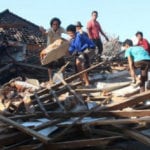 History
History  History
History  Health
Health 10 Everyday Activities That Secretly Alter Consciousness
 History
History Top 10 Historical Disasters Caused by Someone Calling in Sick
 Animals
Animals 10 New Shark Secrets That Recently Dropped
 Movies and TV
Movies and TV 10 Forgotten Realities of Early Live Television Broadcasts
 Technology
Technology 10 Stopgap Technologies That Became Industry Standards
 Weird Stuff
Weird Stuff 10 Wild Facts About Taxidermy That You Probably Didn’t Know
 Travel
Travel 10 Beautiful Travel Destinations (That Will Kill You)
 Miscellaneous
Miscellaneous 10 Modern Marriage Rituals Born from Corporate Branding
 Weird Stuff
Weird Stuff Ten Bizarre Visions of 2026 from Fiction
 History
History 10 “Modern” Problems with Surprising Historical Analogs
 Health
Health 10 Everyday Activities That Secretly Alter Consciousness
 History
History Top 10 Historical Disasters Caused by Someone Calling in Sick
Who's Behind Listverse?

Jamie Frater
Head Editor
Jamie founded Listverse due to an insatiable desire to share fascinating, obscure, and bizarre facts. He has been a guest speaker on numerous national radio and television stations and is a five time published author.
More About Us Animals
Animals 10 New Shark Secrets That Recently Dropped
 Movies and TV
Movies and TV 10 Forgotten Realities of Early Live Television Broadcasts
 Technology
Technology 10 Stopgap Technologies That Became Industry Standards
 Weird Stuff
Weird Stuff 10 Wild Facts About Taxidermy That You Probably Didn’t Know
 Travel
Travel 10 Beautiful Travel Destinations (That Will Kill You)
 Miscellaneous
Miscellaneous 10 Modern Marriage Rituals Born from Corporate Branding
 Weird Stuff
Weird Stuff Ten Bizarre Visions of 2026 from Fiction
10 Mind-Blowing Things That Happened This Week (6/15/18)
Keeping up with the news is hard. So hard, in fact, that we’ve decided to save you the hassle by rounding up the most significant, unusual, or just plain old mind-blowing stories each week.
This week was one of those weeks that will go down in political history. For the first time since it became a separate state, a sitting US president met with the leader of North Korea, at a special summit so improbable that Kim Jong Un joked it was like something “from a science fiction movie.” More on this epoch-shaking event below, along with the other stories you may have missed while the media was focused on Singapore.
10 The Historic Trump-Kim Summit Finally Happened
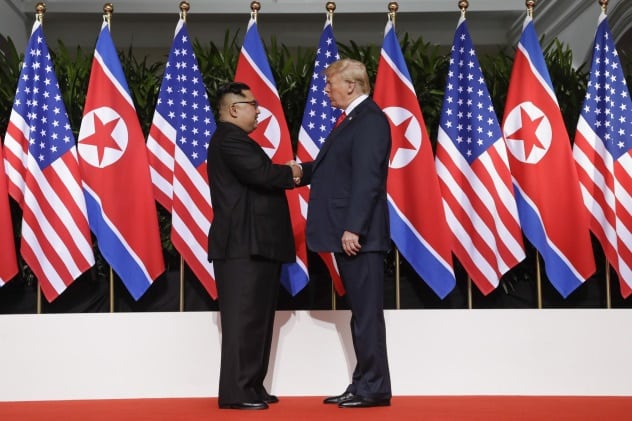
Wow. That’s now two historic US foreign policy pivots in barely three years. After President Obama suddenly reopened Cuba-US relations in 2015, breaking a half-century hiatus, President Trump has now done something similar with North Korea. On Monday, the president and Kim Jong Un finally met for a one-on-one summit in Singapore, effectively bringing the DPRK in from the cold after over 60 years.
The moment was more incredible when you consider where we were just six months ago. As recently as January 2018, things were still so tense between the US and North Korea that a false alert sent by Hawaii’s warning system could spark a panic that the missiles were flying. Make no mistake, to get here involved some incredible behind-the-scenes work in Washington and Pyongyang, helped along by Trump’s own unique approach to foreign policy.
Now the hard work begins. Trump and Kim may have committed to denuclearization, but it won’t mean anything until their underlings hammer out a legally enforceable treaty.[1] Over to you, Mike Pompeo.
9 Macedonia Finally Agreed To Change Its Name (Or Did It?)

Speaking of historic, while the world was watching Kim Jong Un pose in front of Singaporean skyscrapers (some interesting gossip: apparently residents were ordered to leave all their lights on to make the photos as good as possible), another historic pivot was happening half the world away. On Monday, Macedonia and Greece finally settled their 27-year-old naming dispute.[2]
Macedonia is the name of a province in Northern Greece. When the former Yugoslav Republic of Macedonia (FYROM) declared independence and took the name Macedonia, the Greeks weren’t all that thrilled. This had real-world consequences. Greece has long blocked FYROM joining both the United Nations and the European Union over the issue.
Now, that may finally be over. Macedonian leader Zoran Zaev announced the country will change its name to the Republic of North Macedonia.
While this is certainly progress, it’s not the end of the road. Skopje will put the new name to referendum later this year, but there are roadblocks ahead. Earlier this week, the Macedonian president said he would refuse to sign off on Zaev’s new name.
8 Germany Uncovered A Dramatic Bioterrorism Plot
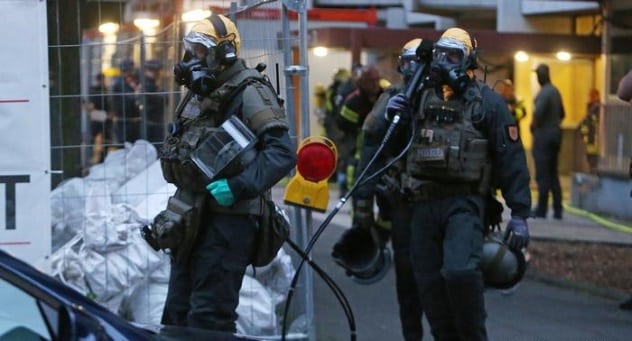
Ricin is an insanely deadly toxin that’s probably most famous among the public for appearing in Breaking Bad. This week, it nearly became famous for a much darker reason. On Tuesday, German police raided the home of a Tunisian citizen living in Cologne. They found a stockpile of ricin, apparently for use in a bioterrorism attack.[3]
The suspect, Sief Allah H., came under police scrutiny for alleged ISIS sympathies. When the intelligence services looked into his online activity, they found he’d ordered 1,000 Ricinus seeds to extract the toxin from. By the time of the raid, he’d built up enough of a ricin stockpile to cause fatalities. No specific plans to carry out an attack were uncovered.
Had Sief actually used his ricin to help ISIS, he would have been in rare company. Bioterrorism attacks are—fortunately—extremely unusual. Two notable ones on record are the 2001 anthrax attacks in the US and the mass salmonella poisoning of 750 people by an Oregon cult in 1985.
7 California Paved The Way For A Referendum On Splitting Into Three States
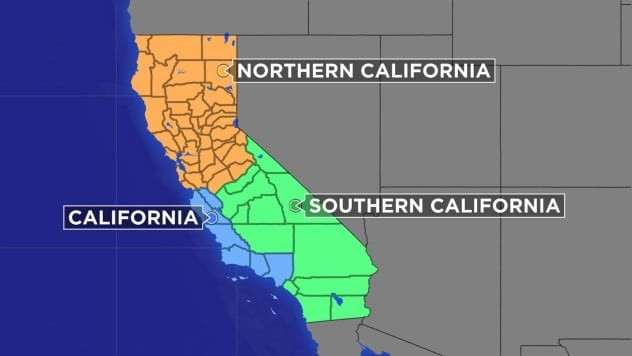
The last time a US state divided into two new entities, it was 1861, and Virginia and West Virginia absolutely could not agree on whether to support the Union or the Confederacy. Fast-forward to 2018, and such a division may finally happen again, and with nary a civil war in sight.
This week, billionaire venture capitalist Tim Drake finally collected enough signatures to get his Cal-3 proposal on California’s November 2018 ballot. If it passes, California would split into three separate states: California (the six coastal counties around LA), Northern California (the San Francisco and Sacramento area), and Southern California (umm . . . all the rest).[4]
Drake has been trying to split his state for some time. In 2014, his plan to create six new states failed to make it onto the ballot due to irregularities with signatures. His new, watered-down proposal will now be voted on, but it’s not clear what it could actually achieve. The creation of any new states requires local and Congressional approval, and it’s hard to imagine California Democrats throwing away a guaranteed 55 seats in the electoral college.
6 The UN Called For An Investigation Into India And Pakistan’s Conduct In Kashmir
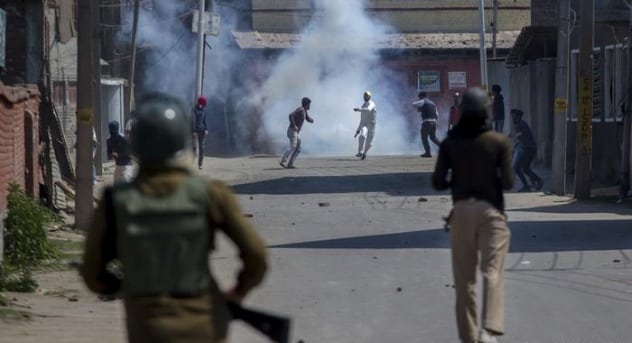
Kashmir is one of the most heavily disputed regions on Earth. Sandwiched between India and Pakistan, it has been claimed by both nations since Partition in 1947. As such, it’s also one of the more violent regions in the neighborhood. Militants frequently carry out attacks, and peaceful protests have been met with uncompromising force.
All of which may be why the UN called for an investigation to be opened into both countries this week.[5] In remarkably strident language, the organization’s human rights chief, Zeid Ra’ad al-Hussein, accused Pakistan of abusing anti-terrorism laws to strip locals of their rights and India of carrying out the killing of peaceful protestors.
The news is likely to anger many in both nations, who see their actions as necessary for cracking down on militancy and keeping their claims on the territory alive.
5 Mass Protests Brought Down Georgia’s Government
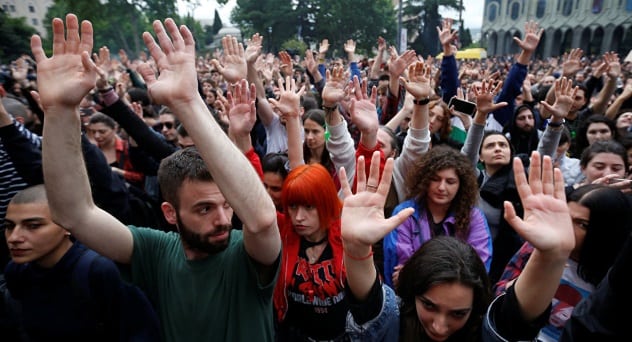
In a remarkable four weeks from April to May of this year, mass street protests in Armenia first toppled the president before growing into a bloodless “velvet” revolution that brought the entire government crashing down. Evidently, somebody in neighboring Georgia was paying attention. Last week, this column very briefly touched on the mass protests paralyzing the capital of Tbilisi. This week, those protestors finally succeeded in toppling the prime minister. His resignation automatically triggered the resignation of the entire cabinet.[6]
The protests in Georgia were more fragmented than those in Armenia. In May, Tbilisi was overrun by protests against heavy-handed police tactics against clubbers. At the end of the month, a separate set of protests blew up about the murder of a teenage boy, whose killers apparently escaped justice due to family connections. Nonetheless, these protests soon became a single, angry howl against the government.
Unlike in Armenia, this wasn’t a revolution. The ruling coalition remains in charge and will this week nominate a new prime minister and cabinet. In Tbilisi, protestors and opposition activists are already being arrested, apparently in the hope they won’t now force the ruling parties out of power entirely.
4 Italy And The EU Got Into A Massive Spat Over Migrants
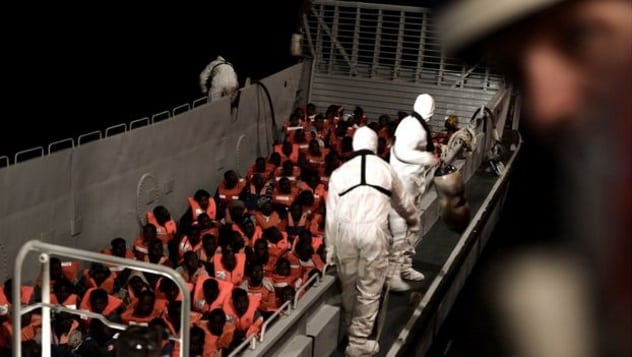
Just a few weeks ago, Italy’s center-left and hard-right populist parties M5S and La Lega entered a shaky coalition with little in common except a mutual dislike of both migrants and the EU.
This week, they managed to launch a new policy that ticked both those boxes. On Sunday, Italy closed its ports to a migrant rescue ship carrying 600. As both the BBC and France 24 noted, the move seemed calculated to trigger a confrontation with other EU states.[7]
Italy has been trying to get the EU to reform migrant policy for years. Currently, most migrants have to stay in the first EU country they arrived in, something the migrants—chasing the dream of Germany—don’t want and something the Italians—getting nowhere near enough extra money to run refugee camps—don’t want, either. Turning away the ship may be little more than a push, however cynical, to get the EU to pay attention and finally overhaul broken migration laws. The question is: Will it work?
3 Nicaragua Tilted Toward Civil War
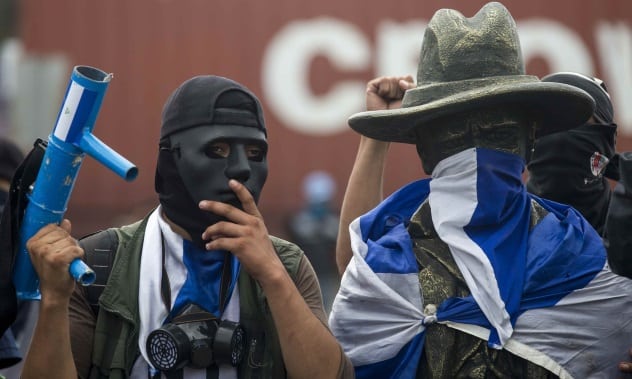
On April 18 this year, Nicaragua erupted into protest over pension reforms. Since then, the country has been more or less in a constant state of upheaval, with the protests morphing into a general uprising against the Ortega government. For many weeks, this column has been looking on a suitable place to report on them, only for other events to take precedence.
This Wednesday, though, the story finally got too big to ignore. A nationwide strike that started at midnight paralyzed the Central American state. With lawlessness gripping the streets and the death toll rising, it’s starting to look like Nicaragua may be headed toward full-blown civil war.[8]
Ortega is currently emulating Venezuela’s Maduro by refusing to either step down or recognize the legitimacy of the protests. At the same time, his security forces are killing demonstrators, with 148 so far dead. Masked paramilitary gangs are prowling the streets, taking out protestors, while some cities—such as Masaya—have seen authorities essentially flee, leaving the streets under the control of armed anti-Ortega rebels. In such circumstances, it’s starting to look like the chances of a peaceful resolution are fading fast.
2 The Biggest Battle Of The Yemeni Civil War Began
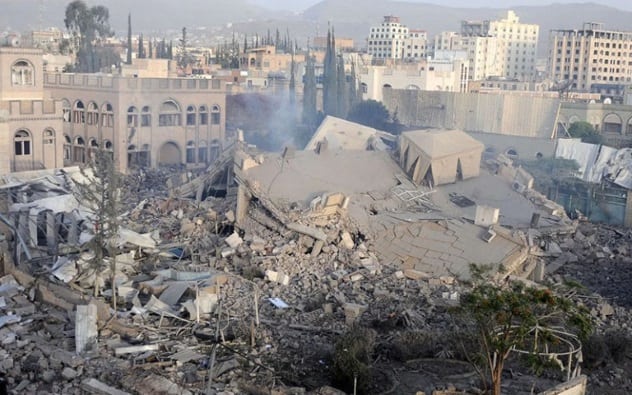
The civil war currently playing out in Yemen has been called the world’s worst humanitarian crisis. Yep, even worse than Syria. An insurrection by Iran-backed Houthi rebels morphed in 2015 into yet another Middle East proxy war, as Saudi Arabia and other Gulf nations decided to get involved. Over 10,000 people have died, with millions at risk from starvation.
Now, the conflict may be about to get even deadlier. On Wednesday, Emirati troops from the Saudi-led coalition reached the rebel-held port city of Hudaydah (also rendered as Hodeida). It’s feared that fierce fighting here could cut off all supplies to rebel-held areas, potentially wiping out all avenues for food aid and humanitarian relief.[9]
A collapse in humanitarian supply lines could trigger a disaster for civilians in rebel areas. Cholera is already rampant, and famine exists in many places. Should the battle for Hudaydah become a siege or devolve into messy street fighting, aid agencies are estimating the interruption to aid could kill up to 250,000 civilians.
1 The Grenfell Anniversary Brought More Bad News For Survivors
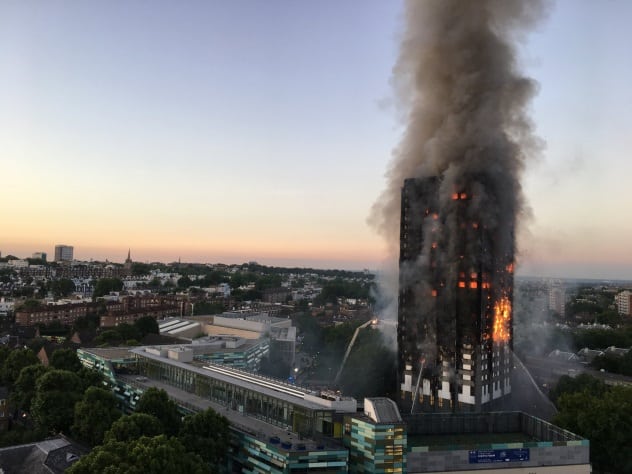
Almost exactly one year ago, on June 14, 2017, a gigantic blaze engulfed London’s Grenfell Tower apartment block. Over several horrifying hours, local residents were forced to watch as flames completely consumed the building—where scores of people had been told to remain by the authorities instead of fleeing. By the time the fire burned itself out, 72 people had died. It was one of the worst fires the UK had seen for decades.
And now the anniversary is here, and with it has come more bad news. This week, the North Kensington Law Center released a report on the aftermath of the tragedy. They revealed that the council responsible for the Grenfell survivors had, in many cases, failed to provide adequate care for those affected and, in some cases, actively made their lives a misery.[10]
Immediately after the fire, the Chelsea and Kensington Council declared it would rehouse all survivors within a year. As of this writing, 83 of the 203 households have found a new permanent home, and 52 a temporary home, but 68 still have nothing. Of those, five households are still waiting for even an offer of an adequate home.
The report alleges that the council repeatedly offered residents substandard accommodation or new houses far away from jobs, schools, and communities. Worse, it says the council then painted the survivors as being too choosy and greatly added to the mental pressure already affecting them. (Many had lost loved ones in the fire.)
To call such a damning report a sad state of affairs would be to indulge in absurdist understatement. Here’s to hoping the next 12 months finally bring some much-needed closure to those affected by the awful blaze.
Missed the news lately? Catch up on more mind-blowing events from June 8, 2018 and June 1, 2018.





